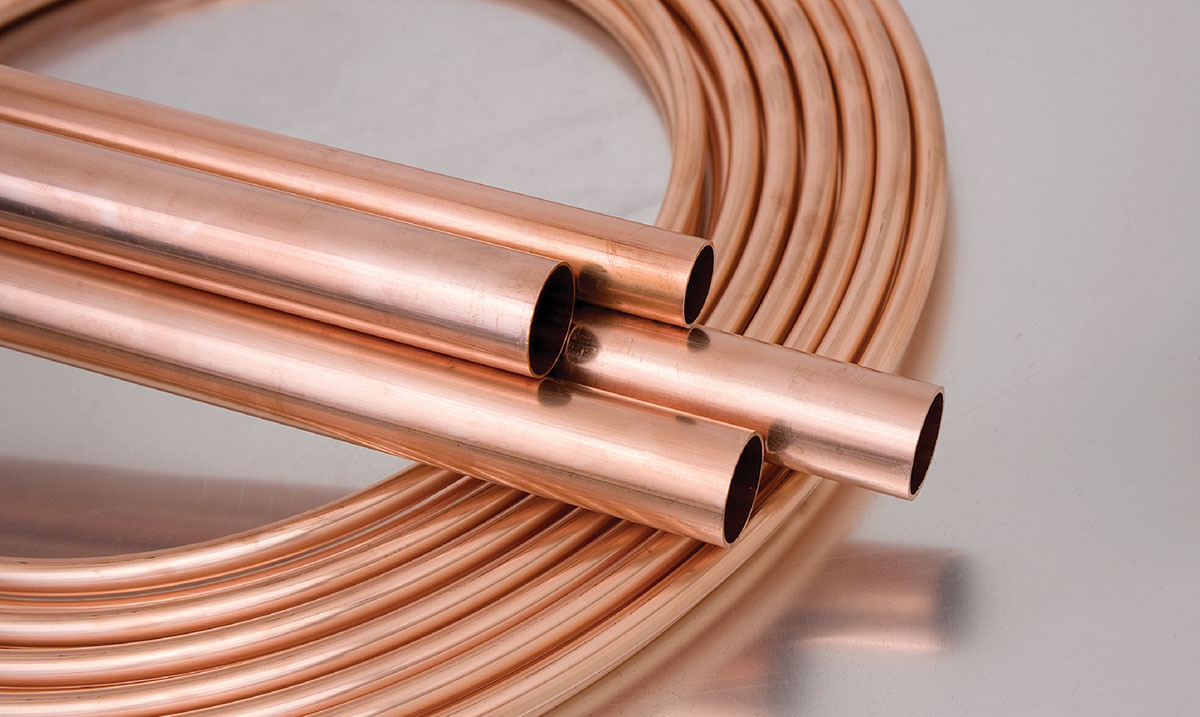Uncovering the Health Benefits of Using Copper Products in Everyday Life
Uncovering the Health Benefits of Using Copper Products in Everyday Life
Blog Article
Just How Copper Products Add To Sustainable Practices in Various Markets
Copper products are progressively recognized for their significant payments to sustainable practices throughout multiple fields, driven by their intrinsic residential properties such as recyclability, effectiveness, and durability. In renewable energy systems, as an example, copper improves the performance of solar and wind innovations, while its application in construction minimizes waste with longevity. The product's antimicrobial characteristics supply encouraging advantages in health care settings. As markets seek to adopt more sustainable practices, the duty of copper could verify essential in attaining environmental objectives. What ramifications might this have for future technologies in sustainability?
Copper in Renewable Resource
Copper plays a vital role in the improvement of sustainable energy innovations, functioning as a vital conductor in different applications. Its phenomenal electric conductivity and resistance to deterioration make it an optimal product for electric wiring, which is essential in photovoltaic panels, wind generators, and power storage systems. In solar photovoltaic systems, copper is made use of in the interconnections and circuitry, making it possible for efficient energy conversion from sunshine to electrical energy.
In wind energy, copper is integral to the generators and transformers that transform kinetic energy into electrical energy, guaranteeing optimum performance and reliability. Furthermore, the need for electric automobiles (EVs) is raising, with copper being an essential element in batteries, electric motors, and charging framework. The change to EVs considerably improves the need for copper, as these vehicles generally use four times extra copper than conventional interior combustion engine cars.
As the world seeks to mitigate climate adjustment and change to lasting energy resources, copper's role becomes significantly important. The material not only enhances the performance and longevity of renewable resource systems yet additionally supports the broader goal of minimizing greenhouse gas exhausts and advertising a sustainable future.
Eco-Friendly Building Materials
Recently, there has been a notable shift towards the fostering of eco-friendly building and construction materials in action to growing environmental problems. This change is inspired by the requirement for sustainable options that decrease environmental impacts while keeping architectural integrity and visual appeal.
Copper, recognized for its sturdiness and recyclability, has actually arised as a key gamer in this field. It can be utilized in roof, plumbing, and electric systems, adding to power efficiency and reducing waste. Copper's long life implies fewer substitutes over time, additional enhancing its sustainability account.
In addition, products such as bamboo, redeemed wood, and recycled steel are getting popularity. These options not only provide minimized ecological impact however likewise advertise source conservation. As constructing codes progressively stress sustainability, architects and building contractors are integrating these materials into their tasks, cultivating technology in layout.
The increasing fostering of environmentally friendly building products shows a more comprehensive commitment to sustainability in the built environment. By prioritizing these products, the construction sector can considerably minimize its carbon footprint, line up with governing requirements, and support a much healthier ecological community for future generations. This pattern notes a critical step towards a more lasting future in building and construction.
Copper's Function in Health care
Recent studies have actually highlighted the substantial function of copper in healthcare settings, particularly because of its antimicrobial residential properties. Copper surfaces have been shown to minimize the existence of pathogens, consisting of bacteria and infections, by up to 99.9% within a brief period. This exceptional efficacy makes copper an indispensable material for high-touch surface areas in health centers, such as doorknobs, bed rails, and IV poles, thereby contributing to improved infection control actions.
In addition to its straight antimicrobial impacts, copper likewise contributes try these out in the broader context of medical facility sustainability (Copper Products). By including copper into medical tools and furnishings, medical care facilities can lower the incidence of healthcare-associated infections (HAIs), which not just improves patient outcomes yet likewise lowers the expenses related to prolonged healthcare facility remains and added treatments
Additionally, copper's sturdiness and recyclability straighten with lasting techniques, enabling liable resource management. As medical care systems significantly focus on both person safety and security and environmental stewardship, the integration of copper products is ending up being a lot more widespread. This double advantage underscores copper's important payment to a healthier, much safer, and extra lasting medical care atmosphere.
Sustainability in Transport

Additionally, copper's durability and corrosion resistance add to the durability of transportation framework (Copper Products). In rail special info systems, as an example, copper components improve the reliability and efficiency of signaling and power systems, necessary for minimizing hold-ups and power consumption. Furthermore, copper's role in renewable resource systems, such as solar and wind, supports lasting transport solutions by offering tidy energy for electrical transportation options
Investments in copper modern technology not only foster sustainability yet additionally stimulate financial growth and task production in environment-friendly sectors. As markets make every effort to meet strict environmental policies, More hints the application of copper products in transportation emerges as a critical technique in accomplishing sustainability goals and advertising a cleaner, extra effective future.
Copper and Round Economic Climate
As the world progressively welcomes sustainability, the function of copper in the circular economic climate comes to be ever before extra significant. Copper's intrinsic residential properties-- such as its recyclability, conductivity, and sturdiness-- placement it as an essential material in a resource-efficient economic situation. The circular economic situation aims to lessen waste and maximize source use with recycling and reusing materials, and copper excels in this regard.
The metal can be recycled indefinitely without loss of high quality, making it an ideal candidate for lasting techniques across numerous sectors, including building, electronics, and renewable resource. By recovering and reprocessing copper from end-of-life products, sectors can significantly lower the need for virgin products, thus reducing environmental effects related to mining and handling.
Additionally, the assimilation of copper into circular economic situation frameworks not just preserves resources but likewise cultivates innovation. Companies that focus on copper recycling add to an extra sustainable supply chain, boosting their competition while straightening with governing needs and customer choices for eco liable items.
Verdict
In final thought, copper products significantly add to sustainable practices across numerous fields. Their crucial duty in enhancing renewable resource technologies, promoting green construction products, supporting infection control in medical care, facilitating sustainable transport, and personifying the principles of a round economy underscores the flexibility and value of copper. By integrating copper into various applications, sectors can achieve higher performance, lower environmental impact, and straighten with international sustainability objectives, ultimately promoting a more lasting future.

Copper's outstanding conductivity makes it a recommended material in electrical automobile (EV) systems, boosting energy effectiveness and efficiency. Furthermore, copper's role in sustainable energy systems, such as solar and wind, sustains sustainable transport solutions by giving tidy energy for electrical transit choices.
Their important function in enhancing sustainable energy modern technologies, advertising environmentally friendly building and construction materials, sustaining infection control in medical care, assisting in lasting transportation, and personifying the principles of a circular economic situation underscores the adaptability and significance of copper.
Report this page